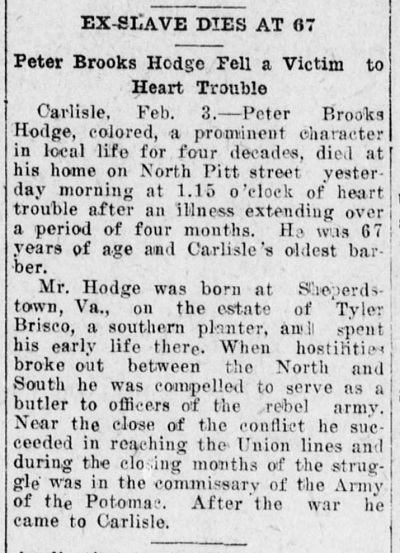 |
AfrolumensProject Central Pennsylvania African American History for Everyone An online resource since 1997. |
|
|
Peter Brooks Hodge, a Formerly Enslaved
| ||||||
|
Significant numbers of formerly enslaved African Americans made their homes in central Pennsylvania in the 19th and 20th centuries. Some escaped enslavement and traveled north via the Underground Railroad before 1865. Many more found themselves no longer enslaved by war's end and looked north for job opportunites or to escape the harsh poverty and crushing racism of southern Reconstruction. The first few decades of the 20th century saw large numbers of southern Blacks moving north to take advantage of the plentiful jobs in northern industries. Their presence in northern cities enriched each African American community. Their shared first-hand stories of lives enslaved broadened the historical perspective and served to counter the "Lost Cause" myths. Knowing which citizens were formerly enslaved is invaluable for modern historians and persons researching their family histories. Small connections can often add up to bigger stories. The news items below represent snippets in the lives of these persons. |
|
Death Notice, February 3, 1915
Text of news article: Source: |
Afrolumens Project Home | Enslavement | Underground Railroad | 19th Century | 20th Century
Original
material on this page copyright 2023 Afrolumens Project